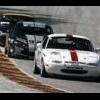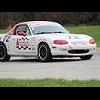...are up:
https://www.scca.com.../cars-and-rules

October 2016 Prelims
#1

 Posted 09-09-2016 10:38 AM
Posted 09-09-2016 10:38 AM

#2

 Posted 09-09-2016 11:35 AM
Posted 09-09-2016 11:35 AM

For the rear offset...did you want the example to be 25mm and 2mm ??
http://cdn.growasset....pdf?1473437984
Recommended Items for 2017
The following subjects will be referred to the Board of Directors for approval. Address all comments, both for
and against, to the Club Racing Board. It is the BoD’s policy to withhold voting on a rules change until there
has been input fr
om the membership on the presented rules. Member input is suggested and encouraged.
Please send your comments via the form at www.clubracingboard.com.
SM
1. #19992 (David Wheeler) Specify Battery
Weight and Size
Thank you for your letter. Change 9.1.7.C.1.o.5 as follows: 5. Batteries may be replaced with those of an
alternate manufacturer, provided they are of similar amp
-hour capacity, size, and weight, and are fitted in the standard location.
Batteries shall weigh 18.0-28.0 lbs.
Additional battery hold-down devices may be used and are strongly recommended.
2. #20047 (Spec Miata Committee) Piston Max Diameter
Change Table 4.: See table
3. #20048 (Spec Miata Committee) Track Width Changes
Replace 9.1.7.C.5.d:
FROM:
d. The front track shall not exceed 1450 mm. The rear track shall
not exceed 1475 mm. Aftermarket wheel
studs, lug nuts, and wheel spacers are permitted. If spacers are used they shall be no greater than 13mm
and equal per axle.
TO:
d.
Front axle offset per side cannot exceed 18mm (examples: 25mm offset wheel with 7mm
spacer; 30mm offset wheel with 12mm spacer).
Rear axle offset per side cannot exceed 23mm (examples: 23mm offset
wheel with no spacer; 30mm offset wheel with 7mm spacer).








#3

 Posted 09-09-2016 04:41 PM
Posted 09-09-2016 04:41 PM

.
Front axle offset per side cannot exceed 18mm (examples: 25mm offset wheel with 7mm
spacer; 30mm offset wheel with 12mm spacer).Rear axle offset per side cannot exceed 23mm (examples: 23mm offset
wheel with no spacer; 30mm offset wheel with 7mm spacer).
This makes little to no sense to me.. 99.9 % of all us in Sm run 25 or 30 mm offset wheels. If the old track rule allowed substantially more offset than 25 mm, than the track rule should have been narrowed even further in such a way that the most offset anyone could legally run is a 24/25 mm. I realize SCCA has always been a stickler to keep the track rule and track is not solely based on wheel offset. It would be nice to change the rule completely to max offset and throw away the track rule entirely.
We are already going through hubs, adding another 7 mm or so to the lever is only going to make this worse. Competitors will also feel compelled to buy new 18mm wheels or test more spacers under 25 mm wheels to get to 18mm Why? Why do we need this? This is all unneeded and a change in the wrong direction IMO. We need less options, cheap and easy. I applaud the SMAC recognizing the track rule was widen than most thought and permitted >18mm offset wheell in the front, however they should have nipped it completely and stopped at a total of 24/25 mm by wheel only or wheel and spacer, but max 24/25 mm. I dont see anyone asking for this for this change? I have my doubts this will go through as written, I sure hope it doesnt as I dont see an upside here.
East Street Auto Parts
Jim@Eaststreet.com
800 700 9080













#4

 Posted 09-09-2016 04:58 PM
Posted 09-09-2016 04:58 PM

This makes little to no sense to me.. 99.9 % of all us in Sm run 25 or 30 mm offset wheels. If the old track rule allowed substantially more offset than 25 mm, than the track rule should have been narrowed even further in such a way that the most offset anyone could legally run is a 24/25 mm. I realize SCCA has always been a stickler to keep the track rule and track is not solely based on wheel offset. It would be nice to change the rule completely to max offset and throw away the track rule entirely.
We are already going through hubs, adding another 7 mm or so to the lever is only going to make this worse. Competitors will also feel compelled to buy new 18mm wheels or test more spacers under 25 mm wheels to get to 18mm Why? Why do we need this? This is all unneeded and a change in the wrong direction IMO. We need less options, cheap and easy. I applaud the SMAC recognizing the track rule was widen than most thought and permitted >18mm offset wheell in the front, however they should have nipped it completely and stopped at a total of 24/25 mm by wheel only or wheel and spacer, but max 24/25 mm. I dont see anyone asking for this for this change? I have my doubts this will go through as written, I sure hope it doesnt as I dont see an upside here.
Couldn't agree more. We don't need another variable to test or one that increases stress on suspension components. Unless I read the rule wrong, this will allow wider track front and rear than before? 25mm wheels without spacers basically puts us at maximum allowed width? Why should we increase track width?




#5

 Posted 09-09-2016 05:34 PM
Posted 09-09-2016 05:34 PM

Maybe I missed a change awhile back...isn't it 1465/1475mm rear for NA/NB cars? Or is it 1475mm for all currently? And if this is the case are NB Knuckles allowed on the NA cars(only difference is the 5mm offset)?
7mm more per corner?? Thats a bit much!
Ron
RAmotorsports


#6

 Posted 09-09-2016 05:45 PM
Posted 09-09-2016 05:45 PM

7mm more per corner?? Thats a bit much!
Marketing, the front hubs will wear out faster and maybe we'll all buy the Mazda Super Hubs.
Naw, ^ that can't be factual because in the recent memorandum it was stated that a goal is keep cost of racing a Spec Miata down.



#7

 Posted 09-09-2016 06:17 PM
Posted 09-09-2016 06:17 PM

Couldn't agree more. We don't need another variable to test or one that increases stress on suspension components. Unless I read the rule wrong, this will allow wider track front and rear than before? 25mm wheels without spacers basically puts us at maximum allowed width? Why should we increase track width?
I believe in recent measuring SMAC determined less than 15 mm would pass current offset rule. They tightened/plannng on tightening track rule which was good, but if this is in fact accurate it needs to be tightened even more so 25 mm is about all we can run.. That is MY opinion.
East Street Auto Parts
Jim@Eaststreet.com
800 700 9080













#8

 Posted 09-10-2016 08:21 AM
Posted 09-10-2016 08:21 AM

One of the reasons we (former SMAC memebers) created this rule was to eliminate the offset chassis. By putting big offset wheels on one side and small offsets on the other side, people where creating what looked like Nascar Super Modified Miatas.
Thank You for your input, the rule is adequit as written.
Dave Wheeler
Advanced Autosports, the nations most complete Spec Miata shop
Author, Spec Miata Constructors Guide, version 1 and 2.0
Building Championship winning cars since 1995
4 time Central Division Spec Miata Champion car builder 2012-2013-2014-2017
Back to Back June Sprints Spec Miata 1-2 finishes 2016 and 2017
5 time June Sprints winner in Mazda's
6 Time Northern Conference Champion Car Builder
2014 SCCA Majors National point Champion car builder
2014 SCCA Runoffs winner, T4 (Bender)
2014 Central Division Champion, ITS (Wheeler)
2013 Thunderhill 25 hour winning crew chief
2007 June Sprints winner, (GT1, Mohrhauser)
Over 200 race wins and counting.
www.advanced-autosports.com
dave@advanced-autosports.com
608-313-1230





#9

 Posted 09-10-2016 09:06 AM
Posted 09-10-2016 09:06 AM

The wheel offset proposal (letter 20048) has been withdrawn for further discussion due to member input as a result of the prelims going up.
- Jim Drago and Sean - MiataCage like this
#10

 Posted 09-10-2016 01:05 PM
Posted 09-10-2016 01:05 PM

I believe in recent measuring SMAC determined less than 15 mm would pass current offset rule. They tightened/plannng on tightening track rule which was good, but if this is in fact accurate it needs to be tightened even more so 25 mm is about all we can run.. That is MY opinion.
Yes and how about getting rid of spacers while we're at it? Would that hurt anyone?




#11

 Posted 09-10-2016 01:31 PM
Posted 09-10-2016 01:31 PM

Yes and how about getting rid of spacers while we're at it? Would that hurt anyone?
I dont run spacers.. but I think getting rid of them would hurt many who have 30 mm wheels and want to 25. Also NA drivers who want the same rear width as 99 would require a spacer or 99 uprights
East Street Auto Parts
Jim@Eaststreet.com
800 700 9080













#12

 Posted 09-10-2016 06:26 PM
Posted 09-10-2016 06:26 PM

FROM: (the rule currently in place)
d. The front track shall not exceed 1450 mm. The rear track shall
not exceed 1475 mm. Aftermarket wheel
studs, lug nuts, and wheel spacers are permitted. If spacers are used they shall be no greater than 13mm
and equal per axle.
TO: (Proposed)
d. Front axle offset per side cannot exceed 18mm (examples: 25mm offset wheel with 7mm
spacer; 30mm offset wheel with 12mm spacer).
Rear axle offset per side cannot exceed 23mm (examples: 23mm offset
wheel with no spacer; 30mm offset wheel with 7mm spacer).
My comments;
The rule change proposal as written was an attempt to get away from the 1450mm Frt/1475mm Rear Track width specification (which is not easily measured at the track in an efficient an accurate (i.e likely not to be disputed) manner.
Per the GCR, the definition and a method by which track is measured is provided in Appendix G. Facts, Formulas, and Measurement Standards. Measuring Track is defined in paragraph 4. and reads as follows;
"Track is the distance between the centerlines of the wheels as raced, without driver, measured at a horizontal plane through the wheel hub centerline. Alternately, it may be measured from the inside of one wheel at the hub centerline height to the outside of the other wheel, then conversely from the outside of the first wheel wheel at hub centerline to the inside of the second wheel. The 2 dimensions obtained are to be added together and divided by 2 to obtain the average. Measurements are to be taken at both front and rear of the wheels and averaged to compensate for toe-in/out. Under certain circumstances it may be preferable to measure from the outside of one wheel to the outside of another and from this dimension deduct the thickness of one wheel. This should be repeated 180 degrees opposite to the first measurement and the two dimensions averaged."
After reading the above I no longer wondered why no one ever seems to ask for a track measurement! I then set out to just see what our track width values were since with with the offset front bushings no one has ever said what their affect is although intuitively you would assume they would result in a narrowing of the track width. Also, many people I talked width thought that track width would be at the tire contact patch on the ground and that use of rolling through a powder could be utilized. From the above SCCA GCR definitions it is clear that these assumptions do not apply.
After thoroughly reviewing the GCR definition I came to the conclusion that I already had the perfect tool to easily and accurately (within 1 mm) measure the front and track width of our car. That tool was the Iron Canyon Alignment String Setup tool. I was easy to measure/verify the width of the string grooves on both of the tool poles provided with the tool. From that we had a boundary width on each side of the car. The only thing necessary to do from there was to determine the section width of either the tire or the wheel (depending on to what surface measurements were to be taken from). I elected to use an inflated tire on a surface plate to establish the tire section width for my measurements.
With the String Setup up it is very easy to set the height of the strings through the centerline of the spindles/half-shafts as I have four 6 inch rules with a magnet base attached that I use to quickly "square" the string box around the car. These rules have all be calibrated to the same height off the magnetic base. For this exercise I use use a steel scale with a mm scale to make the measurements from the Alignment String to the tire sidewall on both sides of the spindle/ half-shaft (to average out any toe affect).
Results: (using in this study 9.5mm Front wheel spacers/ 5mm rear wheel spacers) with following constants and limits
"A"- String Pole Grove Width Constant: =1735 mm
"B"- Track Width Max Limit: B Frt= 1450mm, A Rear= 1475 mm
"C"- SM7 Tire Section Width Constant (in this study mounted on 30 mm offset wheels at 34 psi):= 228mm
"D"- Average "per side" Alignment String to SM7 Sidewall Minimum Measurement to be within Track Width Rule Spec: = "B" Frt = 28.5mm, "B" Rr = 16.0mm
Actual Results:
Front: Track Width= 1436.4 from ( "A" of 1735mm - ("C" of 228mm+ "D" FL avg of 35.3mm + "D" FR avg of 35.3mm) = 1436.4mm (6.8 mm limit margin for additional spacer thickness per wheel).
Rear: Track Width= 1460.4 from ( "A" of 1735mm - ("C" of 228mm+ "D" RL avg of 23.3mm+ "D" RR avg of 23.3mm) = 1460.4mm (7.3 mm limit margin for additional spacer thickness per wheel).
As you can see, with 30mm wheels we could technically could utilize a 16.3 mm front spacer and meet the spec limit. on the front while on the rear we could utilize a 12.3 mm rear spacer while being in the track width spec limits. With the current rules we are limited to the max of a 13 mm spacer What the SMAC was trying to do is to get away from having to utilize the difficult track width measuring process to validate spacer use with track width specifications and giving a couple of mm "draft" to account for manufacture wheel and measurement variations as well as the undefined affect of rules relating to suspension part changes to allow the increased camber capability everyone has come to utilize.
- Sean - MiataCage likes this
#13

 Posted 09-10-2016 07:34 PM
Posted 09-10-2016 07:34 PM

(to reach around tire bulge), one fixed to a square tube, the other probe slides along the square tube.
There is a fixed measuring scale which the sliding probe passes over with a clamp to secure after
measurement is complete. Measure from outside of rim to inside of rim at horizontal center.
Measuring Track is defined in paragraph 4. and reads as follows;
"Track is the distance between the centerlines of the wheels as raced, without driver, measured at a horizontal plane through the wheel hub centerline. Alternately, it may be measured from the inside of one wheel at the hub centerline height to the outside of the other wheel, then conversely from the outside of the first wheel wheel at hub centerline to the inside of the second wheel. The 2 dimensions obtained are to be added together and divided by 2 to obtain the average. Measurements are to be taken at both front and rear of the wheels and averaged to compensate for toe-in/out. Under certain circumstances it may be preferable to measure from the outside of one wheel to the outside of another and from this dimension deduct the thickness of one wheel. This should be repeated 180 degrees opposite to the first measurement and the two dimensions averaged."



#14

 Posted 09-11-2016 06:55 AM
Posted 09-11-2016 06:55 AM

FROM: (the rule currently in place)
d.The front track shall not exceed 1450 mm. The rear track shall
not exceed 1475 mm. Aftermarket wheel
studs, lug nuts, and wheel spacers are permitted. If spacers are used they shall be no greater than 13mm
and equal per axle.TO: (Proposed)
d. Front axle offset per side cannot exceed 18mm (examples: 25mm offset wheel with 7mm
spacer; 30mm offset wheel with 12mm spacer).Rear axle offset per side cannot exceed 23mm (examples: 23mm offset
wheel with no spacer; 30mm offset wheel with 7mm spacer).My comments;
The rule change proposal as written was an attempt to get away from the 1450mm Frt/1475mm Rear Track width specification (which is not easily measured at the track in an efficient an accurate (i.e likely not to be disputed) manner.
Per the GCR, the definition and a method by which track is measured is provided in Appendix G. Facts, Formulas, and Measurement Standards. Measuring Track is defined in paragraph 4. and reads as follows;
"Track is the distance between the centerlines of the wheels as raced, without driver, measured at a horizontal plane through the wheel hub centerline. Alternately, it may be measured from the inside of one wheel at the hub centerline height to the outside of the other wheel, then conversely from the outside of the first wheel wheel at hub centerline to the inside of the second wheel. The 2 dimensions obtained are to be added together and divided by 2 to obtain the average. Measurements are to be taken at both front and rear of the wheels and averaged to compensate for toe-in/out. Under certain circumstances it may be preferable to measure from the outside of one wheel to the outside of another and from this dimension deduct the thickness of one wheel. This should be repeated 180 degrees opposite to the first measurement and the two dimensions averaged."
After reading the above I no longer wondered why no one ever seems to ask for a track measurement! I then set out to just see what our track width values were since with with the offset front bushings no one has ever said what their affect is although intuitively you would assume they would result in a narrowing of the track width. Also, many people I talked width thought that track width would be at the tire contact patch on the ground and that use of rolling through a powder could be utilized. From the above SCCA GCR definitions it is clear that these assumptions do not apply.
After thoroughly reviewing the GCR definition I came to the conclusion that I already had the perfect tool to easily and accurately (within 1 mm) measure the front and track width of our car. That tool was the Iron Canyon Alignment String Setup tool. I was easy to measure/verify the width of the string grooves on both of the tool poles provided with the tool. From that we had a boundary width on each side of the car. The only thing necessary to do from there was to determine the section width of either the tire or the wheel (depending on to what surface measurements were to be taken from). I elected to use an inflated tire on a surface plate to establish the tire section width for my measurements.
With the String Setup up it is very easy to set the height of the strings through the centerline of the spindles/half-shafts as I have four 6 inch rules with a magnet base attached that I use to quickly "square" the string box around the car. These rules have all be calibrated to the same height off the magnetic base. For this exercise I use use a steel scale with a mm scale to make the measurements from the Alignment String to the tire sidewall on both sides of the spindle/ half-shaft (to average out any toe affect).
Results: (using in this study 9.5mm Front wheel spacers/ 5mm rear wheel spacers) with following constants and limits
"A"- String Pole Grove Width Constant: =1735 mm
"B"- Track Width Max Limit: B Frt= 1450mm, A Rear= 1475 mm
"C"- SM7 Tire Section Width Constant (in this study mounted on 30 mm offset wheels at 34 psi):= 228mm
"D"- Average "per side" Alignment String to SM7 Sidewall Minimum Measurement to be within Track Width Rule Spec: = "B" Frt = 28.5mm, "B" Rr = 16.0mm
Actual Results:
Front: Track Width= 1436.4 from ( "A" of 1735mm - ("C" of 228mm+ "D" FL avg of 35.3mm + "D" FR avg of 35.3mm) = 1436.4mm (6.8 mm limit margin for additional spacer thickness per wheel).
Rear: Track Width= 1460.4 from ( "A" of 1735mm - ("C" of 228mm+ "D" RL avg of 23.3mm+ "D" RR avg of 23.3mm) = 1460.4mm (7.3 mm limit margin for additional spacer thickness per wheel).
As you can see, with 30mm wheels we could technically could utilize a 16.3 mm front spacer and meet the spec limit. on the front while on the rear we could utilize a 12.3 mm rear spacer while being in the track width spec limits. With the current rules we are limited to the max of a 13 mm spacer What the SMAC was trying to do is to get away from having to utilize the difficult track width measuring process to validate spacer use with track width specifications and giving a couple of mm "draft" to account for manufacture wheel and measurement variations as well as the undefined affect of rules relating to suspension part changes to allow the increased camber capability everyone has come to utilize.
Nice work Rich..
I still understand the thought processs, Why didn't the SMAC either narrow the track width to stop at approx 25 mm offset or do away with track measuremnet entirely as we tried several years back and spec an offset... allow up to 25 mm and no more than 13 mm spacer? That allows those with older 38 mm offset to run their wheels. IMO, SM does not benefit in any way by allowing the use of 18 mm offset wheels or spacers to get to 18 mm. The competition will be no better, hubs will fail sooner and people will start building and selling 18 mm offset wheels and compeitors will feel they need to buy them. This needs to be dialed back, it is my belief that 99.9% of SM competitors thought that 25mm was right at or real close to max of teh rule( myself included), so no one explored further. But now that you have measured it accurately and I am confiddent in you and your measurements, I think we need to do what is in the best interest of the class, which is dialing back the offfset and/or track rule.
Can anyone please explain to to me what would be good for SM as a class in moving towards 18 mm offset. That's the real question.
- JRHille likes this
East Street Auto Parts
Jim@Eaststreet.com
800 700 9080













#15

 Posted 09-11-2016 09:01 AM
Posted 09-11-2016 09:01 AM

From the tech side, keep it easy to measure. Don''t make it a requirement that the wheel must be removed to measure. Otherwise, everyone is going to have to leave impound to go get a jack and tools. And no one wants to do that in July when it's already a 100 degrees and time to go home. KISS.
We're leaving from the coast of NC in a few minutes for Mid Ohio. Kind of dread the 50 degree lows predicted! And supper the last two nights was fish fresh from the Atlantic via my fishing pole.
#16

 Posted 09-11-2016 11:48 AM
Posted 09-11-2016 11:48 AM

I find that rather funny. Try pulling a hot head in July, in that tiny "tech" shed at Ohio!
- Todd Green likes this
#17

 Posted 09-11-2016 06:37 PM
Posted 09-11-2016 06:37 PM

Jim, now that the proposal has been pulled off the table along with "some" of the background brought into the SMAC discussion as presented here by me, this can and will be debated through the forum with "letter" submission for those with strong opinions.
Personally we have 8 sets of 30 mm offset wheels and would not be happy in having to replace them when a simple spacer can be used to compensate for any rule changes. I was/am also perfectly happy with the rule as currently written as it defines the absolute of what is being controlled. To this end, I think the rule as it exists does the best job of controlling the situation but there are competitors put at a disadvantage (those with NA uprights and those who have the old 38 mm offset wheels).
Some may not have noticed that with the proposed new rule wording, there was not any specific wheel spacer thickness limitation so those with 38 mm wheels could have utilized a 20 mm spacer to achieve the same net 18 mm offset limitation (front) proposed.
There was also a request to be able to "square" the car with spacers but again the NA's with less rear track and 38 mm wheels are at a significant disadvantage given the current 13mm max spacer thickness limit.
I am strongly against departing from a specified track width value (whatever dimension may be determined as appropriate) because if you only focus on allowed spacer thickness and the various wheel offset versions available we are likely to overlook some cleverly modified control arms or use of offset bushings (in other areas than designated currently -front upper control arms) as you have not specification to "Tech" against.
Given the natural variation of parts and distortion in "aged" bushings, combined with the undefined affect of offset upper control arm bushings on track width, I find it difficult to advise Tech that the primary specification we are trying to control can be done with the simple measurement of any wheel spacer and/or the measurement of a tire/wheel assembly's offset given the creativity that has been found employed within this class.
I think some of the topics that need to be sorted out with this issue are:
Should the NA cars be controlled to the same track width specification (which under current rules they are)? (with no allowance for the difference in the parts spec's they are working with)
Should there a limit on the overall thickness of the spacers? (given how this limits/restricts certain class combinations)
Should spacers be used to "square" the vehicles track width front to rear? (this would mean the smaller track width dimension would be the controlling max track)
What should the dimensions for Front and Rear Track Width be? ( For all cars or by Spec Line?)
As I am currently on the road to the Runoffs, I apologize for not being available to participate with prompt replies.
#18

 Posted 09-11-2016 07:05 PM
Posted 09-11-2016 07:05 PM

I also intended to post in my previous response pointing out that if I were to merely replace a set of our 30mm offset wheels with a set of 25mm offset wheels, the Fronts would still be in compliance (going from 1436.4 to 1446.4), with rears going from 1460.4 to 1470.4. leaving the "study" 9.5mm frt and 5mm rear spacers in place.
This shows that in fact the 1450/1475 front/rear track spec needs to be revisited. The data I presented is a sample off one car but I know there was others who also arrived at similar results based on their own evaluation but I do not have their data to validate.
#19

 Posted 09-11-2016 10:57 PM
Posted 09-11-2016 10:57 PM

Ron
RAmotorsports


#20

 Posted 09-12-2016 05:44 AM
Posted 09-12-2016 05:44 AM

I don't see why with the current track width rear number there is any reason not to allow NB rear uprights to be used on any car??
me either.. we tried that back in the day and one SM driver in a 1.6, ( pulled his name out, but you can research it) was buddies with one board member (Robin Langlotz) and it killed the entire NB suspension deal. It passed on CRB level.
East Street Auto Parts
Jim@Eaststreet.com
800 700 9080













1 user(s) are reading this topic
0 members, 1 guests, 0 anonymous users




 Sign In
Sign In Create Account
Create Account



 Back to top
Back to top Report
Report







